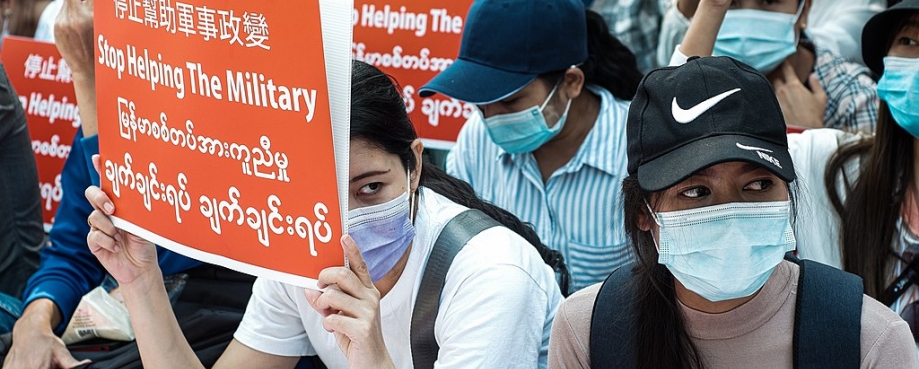
Two years have past since a coup in Myanmar displaced the democratic elected government of Aung San Suu Kyi. The civil unrest that followed was met with a brutal crackdown from the military junta.
In addition to the violent suppression of political and civil rights, the rights of workers have been significantly impacted. This includes the ability of unions to operate freely and consult with or represent workers. Substantial limitations on civic freedom continue to obstruct civil society and the international organisations upon which responsible business can usually rely, from operating as normal, leaving few if any checks and balances on military rule.
In the wake of the coup, debates about whether businesses could continue operating and sourcing from Myanmar while meeting international standards and responsible business guidelines emerged. To provide greater insight on this issue for the export-oriented garment sector, ETI commissioned an independent evidence-based assessment on the context of human rights and responsible business conduct within Myanmar in 2021. This assessment was conducted by Due Diligence Design, with research and analysis from partners Impactt; expert guidance on the implications of the UNGPs from SHIFT; and consultation with OHCHR, OECD and ILO.
The findings are clear; the context does not allow for normal responsible business and therefore companies need to review their sourcing and take into account the demands by unions among others to withdraw. The UNGPs are clear, that failure of a government to protect its citizens does not affect the responsibility of business to ensure that workers in their supply chains are not being exploited in this high risk environment.
There is a need for greater pressure from the international community to create a pathway for a return to democracy as a matter of urgency. In the meantime any company doing business in Myanmar should at the very least review their operations and relationships to ensure that they are not supporting the military and are, to the greatest extent possible, protecting workers' rights.
